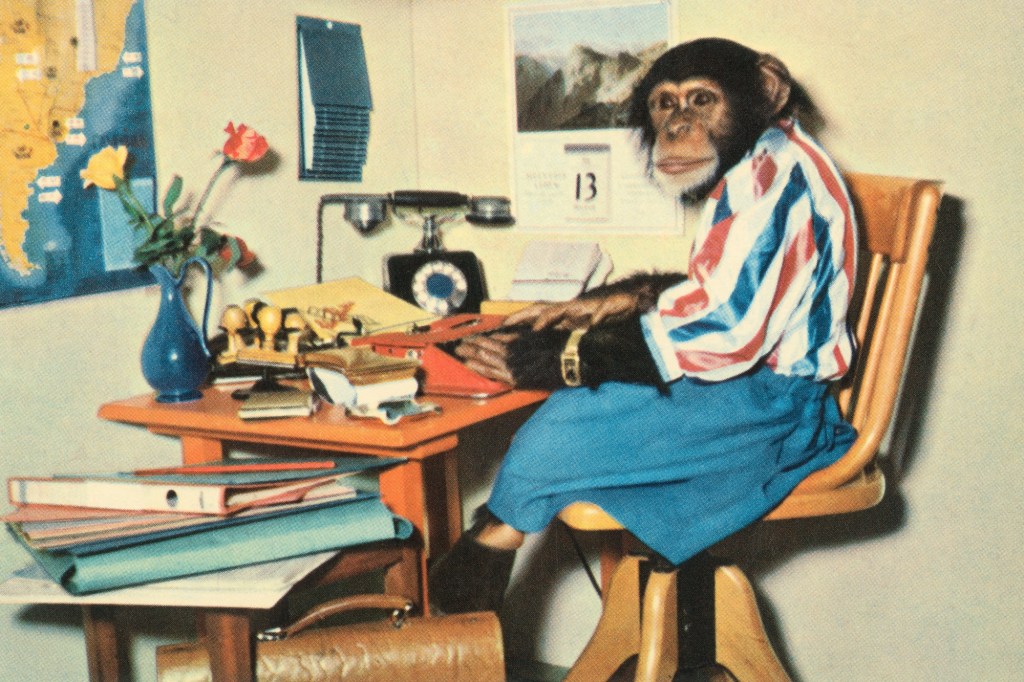Since 1998, Fence magazine has been independently publishing a biannual journal of prose, poetry, art, and criticism; in 2001, they began publishing several lines of innovative, ambitious books. While most magazines (this one excluded, of course) and literary journals can be dry and tedious, each issue of Fence seems to raise its own benchmark. There’s always something in there to befuddle you, to challenge the idea of what could appear on paper, to make you wonder how or why a thing was made. Fence occupies a rare place in new language, and has charged itself with the noble “mission to encourage writing that might otherwise have difficulty being recognized because it doesn’t answer to either the mainstream or to recognizable modes of experimentation.” Editor Rebecca Wolff is unique in that she doesn’t aim to control or even codify the work the press presents: the work is the work, thank God, and understanding is a product of the experience of reading, rather than a kernel to be swallowed.
Over the years I’ve made a point to buy every title Fence Books puts out, which by now includes more than 65 works spanning a remarkable range. Here are some of my favorites.
Videos by VICE
Povel by Geraldine Kim (2005)
About seven years before it became really popular to write insane self-interrogating smartass hybrid-memoir novels, Geraldine Kim pretty much beat everyone’s ass at the game. Povel is 113 pages of inner monologue from a first-generation Korean American woman. The protagonist, who talks (thinks?) shit about family, friends, art, music, food, the everyday, uses a voice more honest and hilarious than overintrospective. It comes on in a flood of little thought units, some more narrative, some more clipped, altogether faster than you are, like: “What they didn’t want you to see. Or the time my parents couldn’t pick me up from school. So I walked home from musical practice and saw an old man pissing on the trunk of a tree in his front yard. Once he noticed I was approaching, he angled his body so I couldn’t see his dick. The pee coming out of him got faster/harder. A verdant patch of ivy is at the base of the tree now. Like the time I walked on the beach and a naked man crouched as soon as he saw me. The boats were painted in pastels.” It’s rare a book can make you laugh out loud in public. This one did that to me dozens of times, once in a gym full of sweaty dudes.
The Cow by Ariana Reines (2006)
I tried to read this thing from beginning to end aloud once and had to stop because it made me feel too insane. The picture on the front cover is of a dude wearing gloves in a room full of dead cows, and that’s about right on for the feeling that pervades throughout the book. Reines is one of few who can write about sex in a way that doesn’t make me want to throw the book across the room. The high ideas here constantly bang against each other, falling apart or exploding in midtransition, only to be picked up again in a completely different sort of momentum. The book keeps surprising you—like it’s always behind you tapping on your shoulder and when you turn there’s this mirror or these dolls or this room full of dead things or blood. “I know this is not a poem because it is sputum,” she writes. “Also a curtain of veilleities hides stars. It’s an environmental day. The spasm fills, never fills, the blood completely, and at this point a wooden bell tells too, tofu on kitchen tile, the sound of polite existence, some taxis in the romance, since its raining, and doubt muzzled in a disposable diaper every day all day. The man said there was maggots in there, there was everything. Mimes. Mimes in meat dresses.” I’ve probably read this book six times and will read it six more before I’m dead.
The Stupefying Flashbulbs by Daniel Brenner (2006)
Here’s another one I’ve read six times, many of them in the bathtub in the dark, because this book feels like a stairwell coming out of water somehow. There’s a heavy strain of fucked up science throughout. Inanimate objects like whirlpools and cubes have as much or more utility than the recurring characters who appear as nothing more than names like McGill and the letter N. I get a Lynchian sense here in how the texts keep clicking and altering their architecture midsentence, forcing the reader down weird little hallways that sputter with light and make you feel like you’ve been suspended in time for centuries waiting for now. I like the way this book seems to touch all other books in places they didn’t know they had, like an appendix, or a computer with brain damage. I’d put a quote from the book here but it feels too much like showing you a door.
Bad Bad by Chelsey Minnis (2007)
“If I write something then let me be killed…” is a good line of Chelsey Minnis’s to sum up the tone that floats throughout a lot of her writing. The book is mostly made of fragments, many of them wry and fragmented at once, like they’re talking shit about themselves while posing for photographs for fashion magazines. The book acknowledges it is speaking a dead language to an audience of almost no one, and rather than feel defeated by that, it uses the opportunity to stand around and poke holes in the air, falsely sincere like a stand-up routine by a comedian who gave up a long time ago and is just trying to live. Sometimes you’re like yes, yes to the jokes, and other times you want to shake them, and other times you feel embarrassed or roll your eyes, which is kind of an uncommon collection of reactions to feel about writing while at the same time knowing the author wanted you to feel that way. Sometimes, while flipping through the book, I get the feeling of walking through a pyramid outfitted with expensive furniture and no one in it. “When I started writing poetry I thought I could be a little girl chained to a post… / I thought I could have a whole suitcase of pills! / Maybe I’m a dumb baby… / But I like to get away with it…”
Flet by Joyelle McSweeney (2007)
Many years after having read Flet, I still have no idea how it was made. It’s like the book involves senses that didn’t exist before these scenes were written. It’s hard to say exactly what’s going on: we’re sort of set in a hybrid landscape wherein all cities have been evacuated after a government-sponsored “emergency.” We follow Flet, the titular character, through files and thoughts and highways and rooms trying to untangle the implications of this emergency, which seems to have been created as a method of oppressing the nation’s media-obsessed masses. The paranoia of postmodern novels is quadrupled here as McSweeney moves Flet forward in an insane topography of prose, bending noir, futurism, science fiction, and many other genres that don’t yet exist, into a space where the words themselves seem to be theaters, stacking on and falling out from underneath each other as they build. From the book: “When they go inside again the corridors are the green of undeveloped film, then filled with crimson and magenta plaques and plates that flow from the periphery to nowhere as the women shift their heads. A corpuscular tide. The auxiliary deposits the girl on her cot, with a glass of water, then elapses into the corridor to make her annoyances known to someone on the end of her fly-black plastic flip phone.” Paired with its sister novel, Nylund the Sarcographer, Flet is a text still quite ahead of its time.
Eyelid Lick by Donald Dunbar (2012)
I wasn’t even sure I liked this book during or after reading it, and yet it continues to appear in my mind, which is one of my favorite feelings. I think I read the author or someone else saying somewhere the book is best read when really drunk, and though I haven’t done that yet it makes sense. It contains little glyphs of personal insight about common shit like relationships and identity, mixed with this weird brain damaged sense of performance. At best it feels sort of Wittgenstein-ian, and at worst like being blackout drunk at a party where you can hear the pretentious guy in the other room waxing philosophical to anyone who’ll listen. “Every part of every cell has inside it the shape for every cell. Honestly, that which I desired most was a more marketable solipsism: your name pasted onto everything, when every word is the same prayer, and all language holy. No, three thousand thous and threes thousand yous stacked like glittering identities in the sunshine and melting. Door cleaves open.” It’s a really bizarre configuration; one that I think puts a lot of work toward forming a secretly rigorous order to its messy body. There is sense here, buried deep enough that the only way to understand it is to not try to understand it at all, like falling through a corridor of expensive puke. But then it’s also spiritual and understanding. I don’t know, you want to hate it and love it at once, and that’s also a rare feeling.
See also:
Nick Demske by Nick Demske
Dead Ahead by Ben Doller
Stranger by Laura Sims
Duties of an English Foreign Secretary by MacGregor Card
Site Acquisition by Brian Young
Star in the Eye by James Shea
The Mandarin by Aaron Kunin
Yes, Master by Michael Earl Craig
Macular Hole by Catherine Wagner
Previously by Blake Butler – Please Start Banning Books Again
More
From VICE
-

Collage by VICE -

(Photo by Found Image Holdings/Corbis via Getty Images) -

The author lurks outside an estate agents, Voigt-Kampff machine just out of shot. Photo by Zuka George -

Jesus, Mary Magdalene, Judas Iscariot, and some fourth wheel at the Last Supper (All photos by Paige Taylor White)